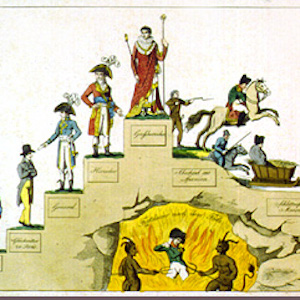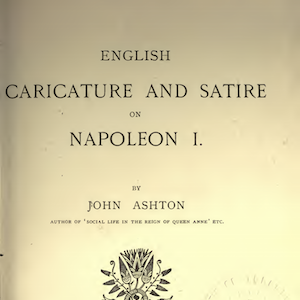Politics

Progression of Napoleon’s Life
Even when they resisted Napoleon’s efforts to control their destinies, contemporaries of all European nations were fascinated by the Napoleonic legend unfolding before their eyes.

Bonaparte and Islam
Bonaparte’s secretary describes the religious practices, attitudes, and views of Bonaparte with regard to Islam.

In Search of Glory: Bonaparte’s Bulletins
In this passage, Bonaparte’s secretary describes the importance and effect of Bonaparte’s propaganda in the form of the military bulletin from an army in the field. Glory and military virtue were emphasized; generals vied to be included.

The Battle of Waterloo as Seen by an Ordinary British Cavalryman
At the Battle of Waterloo, Dickson (1789–1880) was a corporal in a Scottish cavalry troop. He had enlisted in 1807. His reminiscences of the battle were written down by relatives years later.

Germaine de Staël, A French Writer Exiled by Napoleon
De Staël was the daughter of Jacques Necker, Louis XVI’s Swiss Protestant finance minister. She published novels, literary tracts, and memoirs and became one of the best-known writers of the early nineteenth century. Napoleon exiled her in 1803.

A Popular English Broadside (1821)
Some in the popular classes saw in Napoleon an opponent of monarchs.
This source is a part of the The Napoleonic Experience teaching module.

Rights of Man
Thomas Paine (1737–1809) played a vital role in mobilizing American support for their own independence, and he leapt to support the French revolutionaries when Edmund Burke attacked.

A Poem by Victor Hugo (1830)
In his poem “To the Column,” the great French poet Victor Hugo celebrates the memory of Napoleon.
This source is a part of the The Napoleonic Experience teaching module.

Arrival of the Royal Family in Paris on 6 October 1789
When the revolutionaries, led by thousands of women, marched to Versailles, they triumphantly seized and then brought the king to Paris, where he would live in the midst of his people.

The King Returns to Paris
From Berthault’s series of great moments in the Revolution, this engraving presents a version of events on 6 October 1789 favorable to the King.